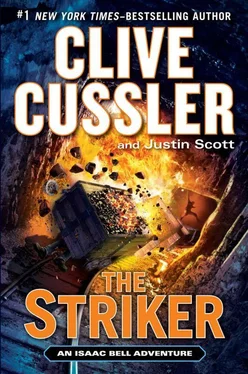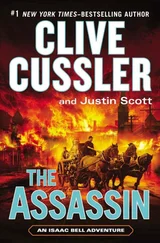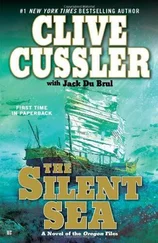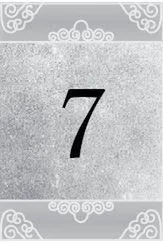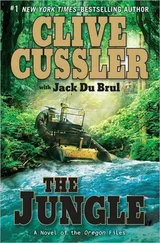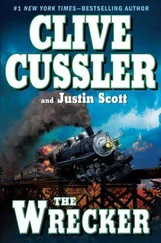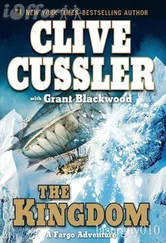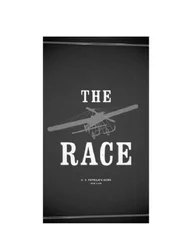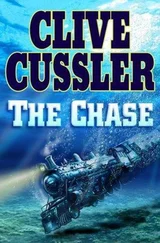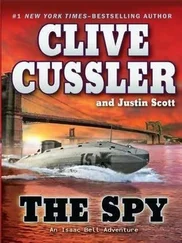The boy nodded. “I didn’t tell you the truth about my father.”
“You said you don’t have a father.”
“I do have a father.”
“Good. Where is he?”
Luke looked around and whispered, “Hiding from the cops.”
“Why’s that?”
“The union sent more organizers from Pennsylvania.”
Bell nodded, recalling, again, Jim Higgins’s promise that union men would replace him.
“The cops caught one and beat names out of him.” Luke’s lips started trembling, and Bell saw him stare at the table as if imagining his father smashed to his knees in a hail of fists and blackjacks.
“Whose names, Luke? Your father’s?”
“Somebody warned him. He got away.”
“What’s that smell?” called Wally Kisley.
“That’s your supper,” said Mack Fulton.
“Not these buffalo chips. I smell something good. Hey, boy, what’s in that sack?”
Luke clutched his bag tighter.
Bell whispered, “Is that for your dad?”
“Yes, sir,” Luke whispered back. “From my mother.”
“Why’d you come here?”
“I thought if you’re private detectives, maybe…”
His voice trailed off.
“Maybe what, Luke?”
“Maybe I could hire you to protect him from the cops. Or at least help him get away?”
“Detectives cost a lot of money,” Bell said gently.
“I don’t have any money — excepting what you gave me. But I’m wondering if maybe I could trade something.”
“Like what?”
“Like things I heard.”
“Things you heard where?”
“Jake’s Saloon, where the cops hang out…”
“Does Jake allow boys in his saloon?”
“We climb up from the river, under the cellar, and we can hear ’em yelling upstairs.”
Wally called, “What do you have in that sack, boy?”
“Fatback and biscuits and baked taters, sir.”
The Van Dorns looked at their plates, then at Luke’s sack.
“I have an idea,” said Wally Kisley.
“No,” said Isaac Bell. “Luke’s got a job to do, delivering supper. And we’re going to help him.”
Truculent expressions on the faces of his men told Bell that he had a rebellion on his hands if he didn’t think quick. “Gents: Wally and Mack and Archie are going to the company store to buy fatback and flour and lard and coffee and sugar and milk and butter and potatoes, which they will carry to Luke’s mother and pay her five dollars to rustle up a couple of days’ worth of fatback, biscuits, and baked taters.”
“What are you and Wish doing while all that shopping and cooking and waiting is going on? Eating the kid’s?”
“Wish and I will provide Luke with an escort.”
* * *
James Congdon’s secretary carried a single sheet of paper into his office and laid it on his desk. “I’m sorry for the delay, sir. Detective Clay’s code is complicated.”
Congdon read it, twice.
“Are you sure you deciphered it correctly?”
“Absolutely, sir. It is complicated but consistent.”
Congdon read it again.
“Shall I take down your reply, sir?”
“No reply.”
“Yes, Judge Congdon. Is there anything else?”
“Yes.” Congdon named three stockbrokers who regularly bid for him in secret. “Tell them to buy up every share of Gleason Consolidated as they become available.”
The secretary, a sly co-conspirator with an encyclopedic knowledge of Wall Street, had been privy to Judge Congdon’s schemes long before the financier hammered together U.S. Steel. “I was not aware that Black Jack is selling.”
“His heirs are building mansions and buying yachts and private cars. They’re deep in debt, greedy, and impatient.”
“But are they in a position to sell? Gleason keeps a tight rein on his stock.”
Congdon read Henry Clay’s wire, again to be absolutely sure what the private detective was promising in veiled language. He said, “His heirs will be in a position to sell. What do we know about Gleason’s lawyers?”
As they were discussing heirs and inheritance, Congdon’s secretary said, “There was the incident concerning the probate engrossment of the Widow O’Leary’s supposed will — yet to be resolved — which weighs heavily on their firm.”
“To be resolved by whom?”
“It is still in probate court.”
“Perfect. Resolve it for them.”
“That should make the lawyers grateful,” said Congdon’s secretary — understanding in a flash that they were discussing the expeditious execution of Black Jack Gleason’s will when he finally shuffled off to that heavenly coalfield in the sky. Understanding, too, that that voyage to the other side might commence sooner than Gleason expected, the secretary calculated to the penny the bribe that the probate judge would accept.
“Is there anything else, Judge Congdon?”
“Transfer all Gleason stock to a holding company with no traceable connection to my interests.”
“What do you want done with Gleason’s managers?”
“They can keep their jobs so long as every last bushel of Gleason coal is barged to my Amalgamated Coal Terminal.”
“Hold on, Isaac,” said Wish. “Are you sure you want to be taking sides in this dustup?”
The cave where Luke’s father was hiding in the woods up the mountain had been chosen for its view of the approach up the logged slopes, and when Bell asked whether his father was armed, Luke said he had a squirrel rifle, so he had sent the boy ahead to alert him that they were coming.
“We’re not taking sides,” he told Wish. “Mr. Van Dorn stressed that point when we spoke. But he also warned me not to get caught in the middle, and the best way to do that is stay ahead of both sides. Wouldn’t you say?”
“Couldn’t have put it better myself.”
“Here comes the boy.”
Luke led them the final hundred yards up the logged slope and into the cave, which Bell surmised, by its timber propping, was actually an old mining hole cut into the side of the hill by backwoodsmen digging for fuel to heat their cabins long before the Gleason Consolidated Coal & Coke Company commenced its commercial venture. Zeke, Luke’s father, could not risk lighting a fire. He had a thin blanket for the cold, and he tore hungrily into the biscuits, after first asking whether Bell and Wish had eaten and they answered that they had. Between bites he explained that union men were coming from Pennsylvania and that he and scores of others were going to join them and call a strike.
Sounds drifted faintly up the mountain — the chug of a locomotive across the river, a steamboat whistle, bursts of raucous laughter from the saloons, and, once, the clang of the trolley. The ill-lit Gleasonburg itself appeared as a distant glow, softer than the thin moonlight filtered by river mists.
Bell said, “Luke, maybe you ought to tell your father what you told me you overheard.”
“What’s that, boy?”
“The cops said the scabs are coming.”
“What scabs? From where?”
“Italians and Poles.”
“Then we’ll block the trolley. Maybe even get the Brotherhoods to stop the trains.”
“I’m afraid it won’t be that easy,” said Bell. “What Luke heard suggests that the company will barge them up the river from Pittsburgh.”
“That’s not possible.”
“That’s what they said.”
“Well, that just plain ain’t possible. We haven’t even begun to strike. What would give them the idea to bring scabs? How could they know our plans? We just made ’em. Now, what are you Van Dorn fellows doing here?”
Isaac Bell said, “Do you need our help?”
“What kind of help? Fighting strikebreakers? We can barely feed ourselves. How we gonna pay your fees?”
Читать дальше
